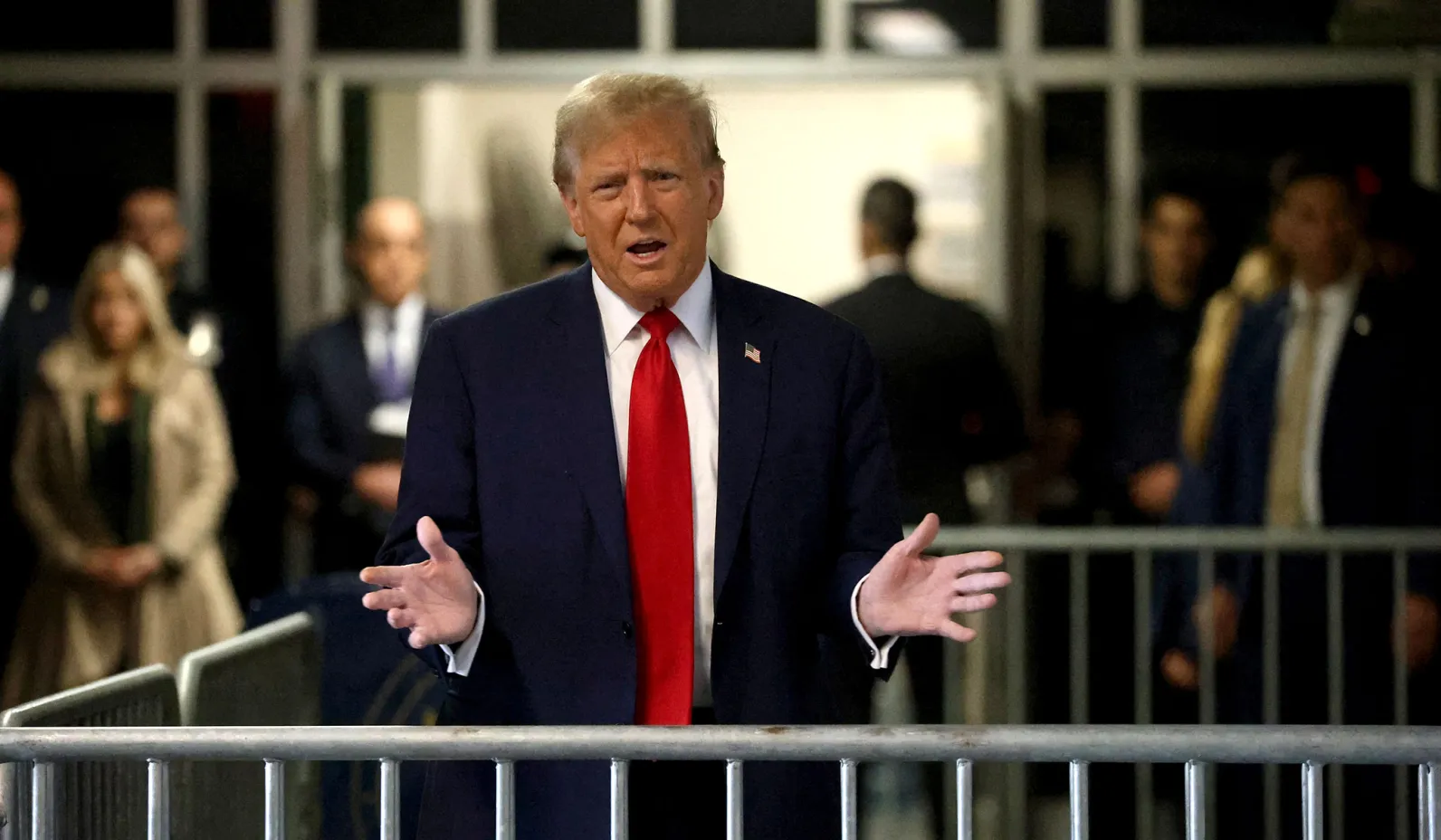
The former president is not charged with a conspiracy to steal the 2016 election — but the jury might think he is.
If former president Donald Trump seems even more cantankerous in his Manhattan courthouse press conferences than in those he has held at other Democratic lawfare venues, it is undoubtedly because of his unique insight into what is being done to him there. As a young mogul, Trump learned hardball litigation at the feet of Roy Cohn, a rogue master of the game. Cohn’s No. 1 rule was: “Don’t tell me what the law is. Tell me who the judge is.”
In the ongoing criminal trial, elected progressive Democratic district attorney Alvin Bragg doesn’t have much of a case. But he has the judge, and that is all he needs.
Judge Juan Merchan is orchestrating Trump’s conviction of a crime that is not actually charged in the indictment: conspiracy to violate FECA (the Federal Election Campaign Act — specifically, its spending limits). That should not be possible in the United States, where the Constitution’s Fifth Amendment mandates that an accused may only be tried for a felony offense if it has been outlined with specificity in an indictment, approved by a grand jury that has found probable cause for that offense.










